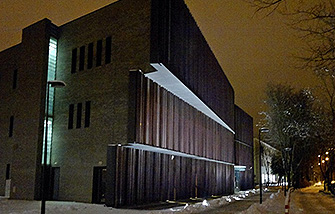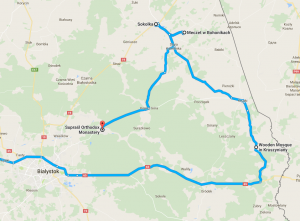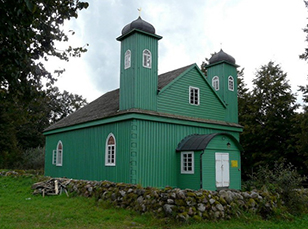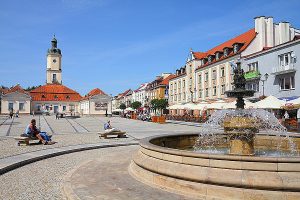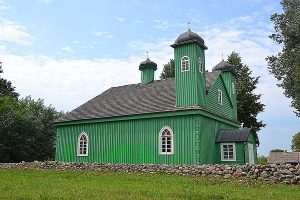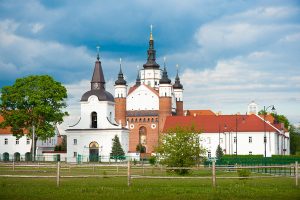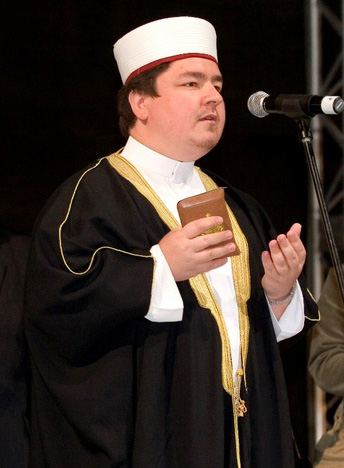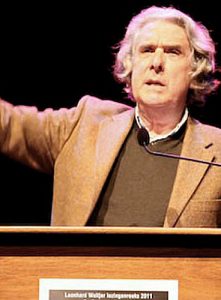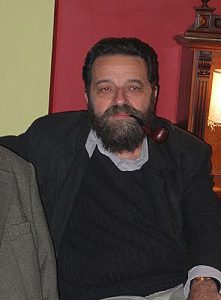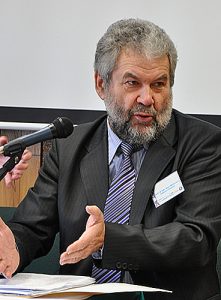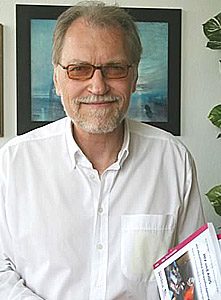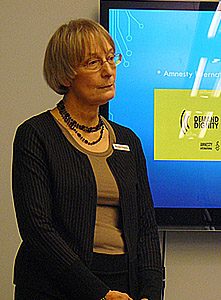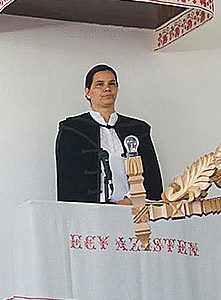Update: Conference postponed, Interfaith Study Tour for registered participants
Due to low number of registrations, which we understand was caused by our Polish partners’ involvement in the current political events in the country, we decided to postpone the Conference and organize an abridged programme for those who had already paid the fee and made travel arrangements. The new date of the Conference has not been determined yet. We will inform you of it as soon as possible on the website, social media and through our email newsletter.
The abridged programme, the Interfaith Study Tour Poland 2017, entails a tour of the region, meetings with representatives of the Tatar, Jewish and Orthodox communities as well as an opportunity to future plans of IARF EME. It is currently no longer possible to register for the Study Tour.
(details may change slightly):
Original text
The Europe and Middle East branch of IARF (you can read more about EME here) will organize a conference in Poland on 11-14 September 2017. It was prompted by positive feedback after the 2016 conference (in Macedonia) and the desire expressed by its participants for EME to hold such meetings more often.
Below you can read about the theme, the speakers and our goals for this meeting, and at the bottom of the page you will find information about the fee, contact persons, accommodation and venue. This page will be supplemented with more details as we finalize the programme. The language of the conference will be English.
Everyone, from the region and beyond, is of course welcome, and we invite all our Chapters and member groups to participate as well as all interested in interfaith dialogue and cooperation. (For your information: the next EME business meeting will be held during the IARF World Congress in Washington DC, USA (August 2018), and the next quadrennial conference will be held in Hungary in 2020.)
Theme
The theme we chose is Interfaith Dialogue and Minority Concerns in the New Europe: Opportunities and Challenges. As the religious and cultural landscape of Europe continues to evolve, the problem of inter-cultural and inter-religious relations and the status and rights of minorities are increasingly capturing Europe’s attention. Regrettably, the tone of reporting and discussion is often alarmist and we tend oversimplify complex problems and processes, so that there is little room for an in-depth discussion of how society at large as well as new and old minorities can initiate a productive, civilized dialogue and learn to respect each other and collaborate on issues that concern them all. Moreover, there is a very clear difference in how these issues are approached in the West and the East of Europe.
Location
The location of the conference, the Polish city of Bialystok in the Podlaskie Province, located relatively close to the country’s capital and yet unique, offers an excellent opportunity for people from Western and Central Europe to share their experiences and learn from each other. What makes the region particularly interesting is its multireligious and multiethnic character. The Podlaskie Voivodeship (province) borders Lithuania, Russia and Belarus. Apart from Roman Catholic Poles, there are large groups of Orthodox or Byzantine Orthodox Christians (Poles or Belorussians) and Muslims (Tatars). Before WW II many Jews lived there as well (the Jewish community in Bialystok comprised the largest percentage of inhabitants of all European cities). You may have heard of Bialystok in relation to its most famous citizen, Ludwik Zamenhof, the creator of Esperanto, the most widely used constructed language in the world with a large movement promoting peace and multicultural understanding. The Tatar Muslim minority is of special interest. The Tatars have lived there for centuries in harmony with their Christian neighbours and represent a well-integrated, liberal form of Islam.
Our goal
We hope to create an opportunity for people from the IARF network, which come both from Western and Eastern Europe as well as the Middle East, and people from Poland to share experiences and learn from each other and about each other in so far as interfaith issues, tolerance and their history is concerned. The lectures and panel discussions will take up the history and present day reality of religious diversity in Poland from the point of view of Islam, Judaism and Unitarianism. On the other hand speakers from Western European countries will address interfaith concerns and approaches currently prevalent in their societies.
Speakers
The list below includes confirmed speakers. It will be regularly expanded and supplemented.
The speakers will include representatives of the Polish Tatar community, of other Muslim traditions present in Poland, academics studying the cultural and religious history as well as present relations obtaining in the region, representatives of the Jewish community and local Unitarians. From IARF’s network there will be interfaith activists and scholars. We will soon publish a detailed programme with topics of lectures, panels and workshops.
Pre-Conference Tour
IARF EME traditionally organizes pre-conference tours for interested participants. In 2016 we travelled through Macedonia and Albania. The 2017 tour will begin three days before the conference, that is on Friday the 8th. We will depart from Warsaw Airport at 1 pm. The fee is 310 EUR and is all-inclusive. You may register using the Conference Registration Form.
Here you will find the programme and other details.
Transfer
Transfer is not included in the fee, though all who register will receive the best support we can offer, including the possibility to obtain assistance by telephone once in Poland. There are two public transportation connections, a bus and a train, which are both very cheap and straightforward. You may look them up on Google Maps using the “Transit” option in the route planner, including times. Once in Bialystok, you can take a taxi to the hotel (about 5 EUR) or a bus. Should several people arrive on one plane, they may take a taxi (about 29 EUR/person when 4 share the ride), or, if the group were larger, we may arrange for a mini bus, which will be cheaper than a taxi.
Option 1
Bus from airport to Bialystok bus station: every two hours, about 30 PLN (7 EUR), travel time about 3:30 hrs (see: https://plusbus.pl/). Taxi from the bus/train station to the hotel, about 20 PLN, or public bus nr 29 or 107 (almost no walking distance, about 3 PLN).
Option 2
Train from airport to Bialystok train station (transfer at Warsaw Central Station), every hour, about 40 PLN (2nd class), travel time about 2:40 hrs (see http://rozklad-pkp.pl/en)
Taxi from the bus/train station to the hotel, about 20 PLN, or public bus nr 29 or 107 (almost no walking distance, about 3 PLN)
Option 3
Taxi from the airport to the hotel. A regular fare is about 500 PLN (about 115 EUR). This is a viable option if several people arrive on the same plane and share the ride.
The fee is 200 EUR and includes: accommodation (3 nights), conference pack, breakfast, lunch and dinner each day. For those who don’t wish to use the accommodation a day fee of 20 EUR applies.
Lukasz Liniewicz
IARF Administrator
[email protected]
+31 641-744-951
Skype: iarf_skype
Lucie Meijer
IARF EME Treasurer
+31 20-66-93-912
[email protected]
Hotel Turkus
Aleja Jana Pawla II 54
15-001 Białystok
0048 85 662 81 00
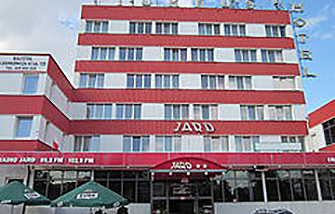
University of Bialystok
Faculty of Pedagogy
Swierkowa 20
15-328 Bialystok
